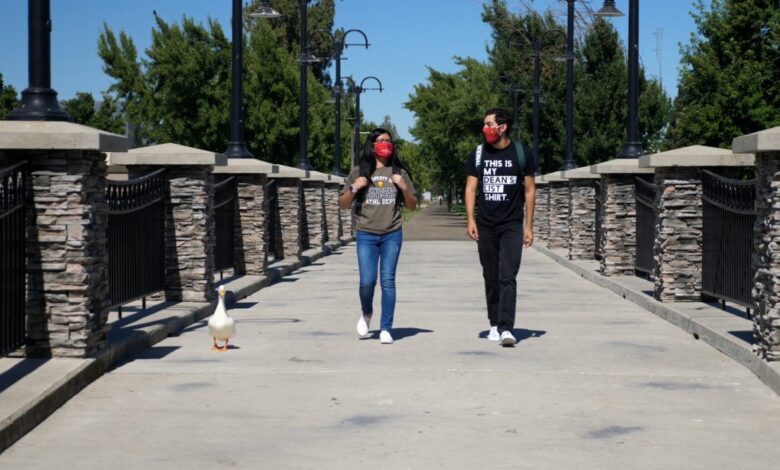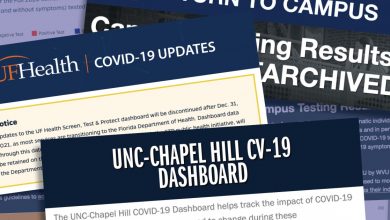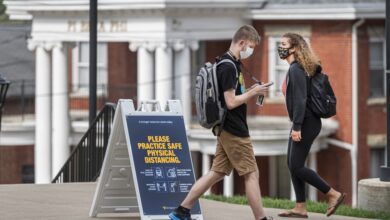As Covid-19 Surges, Some Campuses Will Start the Semester Online

Some universities in Texas and California are delaying in-person learning, opting instead for remote classes in the first weeks of the fall semester to mitigate the rise in Covid-19 infections.
Among the campuses that have announced a delay:
Each of the colleges have cited the more-transmissible Delta variant as the reason for the shift in course.
“Delta is not done with us yet. It really changed the ballgame,” said Joe Gerald, an associate professor of public health at the University of Arizona and the co-chair of the university’s Public Health Advisory Covid Team. “The things that we might have considered to be sufficient to work a year ago, when we’re talking about coronavirus classic, just don’t make the same sense anymore because this is several times more transmissible, and it just changes the rules of the game.”
The University of Arizona is planning for in-person classes starting on August 24. While face coverings are required in all indoor spaces where social distancing can’t be maintained, the university is encouraging but is not mandating getting the Covid vaccine. Arizona’s Gov. Doug Ducey issued an executive order in August strengthening enforcement against vaccine mandates.
Similarly, in Texas, local government restrictions are prohibiting vaccine and mask mandates. With Covid hospitalizations and ICU cases surging in the state, Gerald said, delaying campus reopening could alleviate some of the stress on local hospitals.
“By transitioning to remote learning, not only do you reduce the number of interactions that you might have in a classroom setting, you also reduce interactions that occur on campus in general as students retreat to their smaller social networks and there’s less interaction over all,” he said.
The Alamo Colleges District aims to returning to on-site instruction and have staff working on site in rotation schedules by September 7. And starting Monday, all employees, students, and vendors’ employees scheduled to work on site will be screened for Covid weekly. Face coverings are “strongly encouraged” but not required, and the colleges have partnered with Community Labs to offer free Covid screenings for employees and students.
UT-San Antonio leaders said the campus will temporarily adjust its approach “until we see the Delta surge begin to diminish and return to less-risky levels similar to what we experienced earlier this summer,” in an email sent to all faculty, students, and staff.
Ellen Junn, the president of Stanislaus State, said in an announcement on Saturday that the notable increases in local Covid cases and several recent confirmed cases on campus contributed to the decision to delay.
Over 85 percent of Stanislaus State students come from Central Valley, Calif., which has among the lowest vaccination rates in the state, according to Junn. Last week, when the university confirmed nine Covid cases on campus before students had moved in, Junn decided to halt the first phase of campus reopening. The campus has just over 11,000 students.
“Our Covid case rates are spiking,” she said. A majority of those infected on campus were fully vaccinated.
At Stanislaus State, full vaccination and mask-wearing will be required to attend classes in person. All students and employees have until September 30 to submit proof of vaccination to the university.
Junn hopes that an additional six weeks of remote learning will give more students additional time to get vaccinated.
“We wanted to make it possible that students could be completely vaccinated by the time we reopen,” she said.
Even though delaying on-campus reopening buys campuses some time and provides a temporary fix, Gerald said, it’s not a substitute for vaccinations.
“Vaccination is the best long-term strategy we have to deal with Covid,” he said. “If you actually want to fix the problem and solve it long term, we need vaccination uptick.”
Source link






